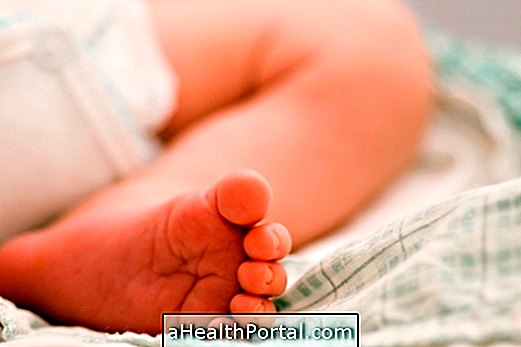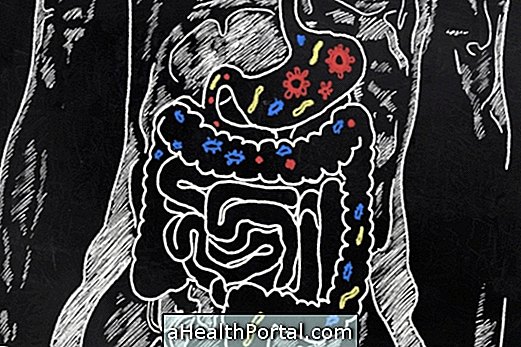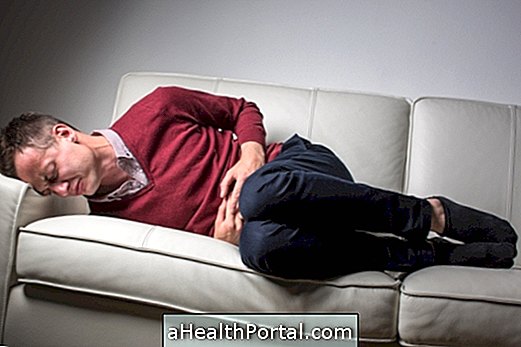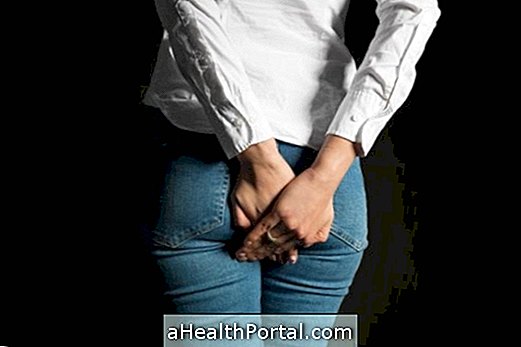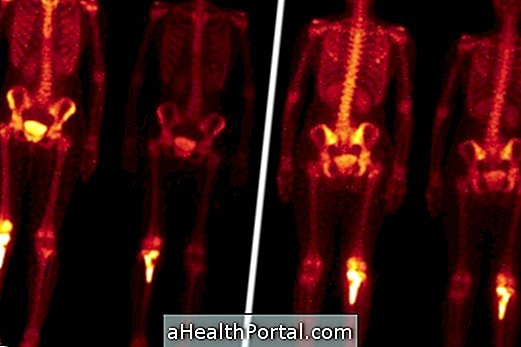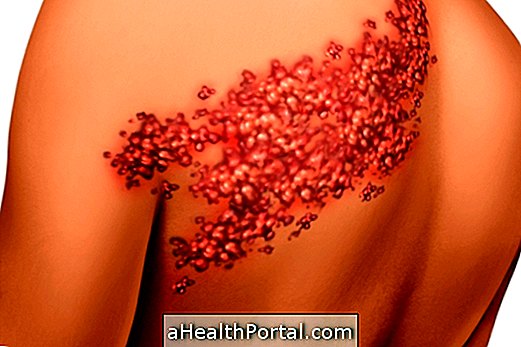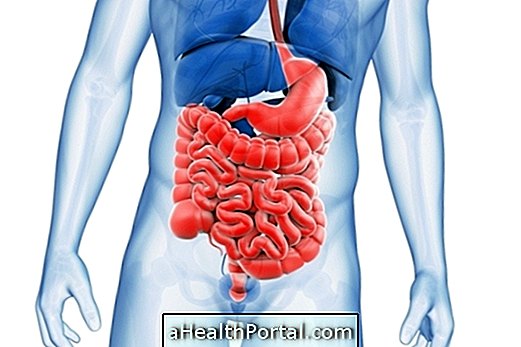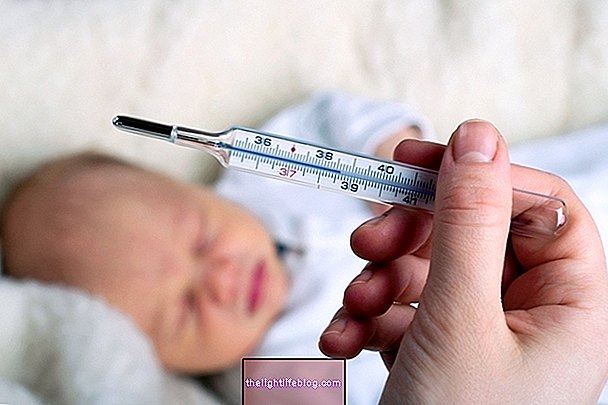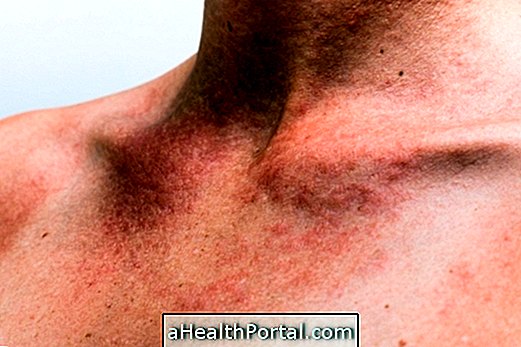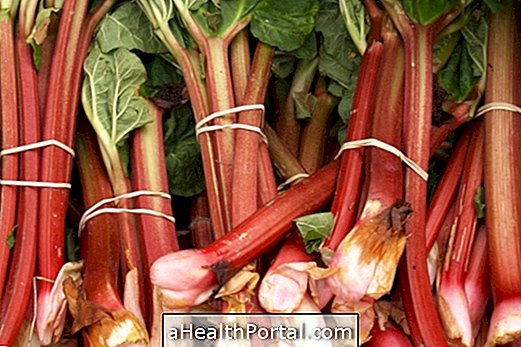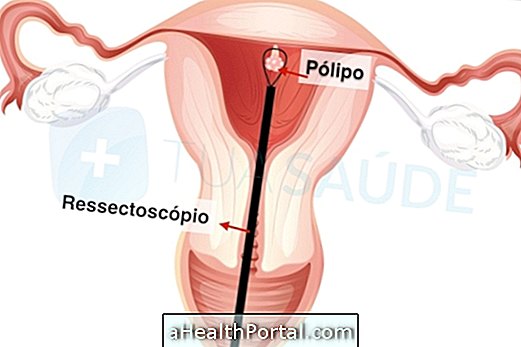The presence of live blood in the stool can be frightening, but although it can be a sign of serious problems like colitis, Crohn's disease or cancer, it is usually only a sign of milder and easier to treat problems such as hemorrhoids or anal fissure, for example .
So to know the exact cause and start the proper treatment it is very important to consult a proctologist or gastroenterologist to do diagnostic tests and identify the problem.
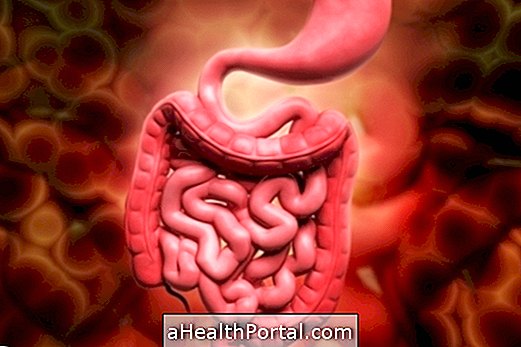
Major causes of live stool
In most cases, the presence of blood in stool happens due to simpler problems like:
1. Hemorrhoids
They are most common in people with constipation and they arise due to the dilation of the veins provoked by the force necessary to defecate. In addition to the bleeding cause symptoms such as intense itching, pain upon defecation and swelling in the region of the anus.
How to treat: A good way to relieve pain is to take a warm bath for 15-20 minutes. However, it is necessary to use ointments and remedies to treat hemorrhoids rapidly and it is therefore recommended to consult a doctor. Learn more about how this issue is handled.
2. Anal fissure
Although they are rarer, anal fissures can also occur in people who suffer from constipation and consist of small wounds that arise around the anus and that can bleed the moment you defecate. Other symptoms that may arise with the fissure are pain when cleaning the anus and itching. See more about anal fissure.
How to treat: To relieve discomfort it is recommended to drink plenty of water during the day and eat vegetables to make stools softer and prevent them from hurting. However, a proctologist should be consulted to begin treatment with remedies that aid in healing. In more severe cases, surgery may be necessary to close the fissure.
3. Medical examinations
Colonoscopy is a medical examination widely used to evaluate problems in the gut. In this examination, a thin flexible tube is inserted through the anus to convey images that help the doctor look inside the intestine. During the examination, the tube may cause small traumas in the wall of the intestine, which then bleed, leading to the appearance of blood in the stool. In addition, if it is necessary to remove polyps during colonoscopy, the risk of bleeding is greater.
How to treat: usually these bleeds are normal and should not be of concern, disappearing up to 24 hours. However, if the bleeding is very intense or lasts longer than 1 day you should consult the doctor who took the exam or go to the emergency room.
More serious causes of live blood in feces
Although it is much rarer, live red bleeding in the stool may be one of the first signs of more serious problems such as:
4. Diverticulitis
This disease is most common after age 40 and happens due to an inflammation of the diverticula, which are small folds in the wall of the intestine. Diverticulitis can cause symptoms like severe abdominal pain in the lower left part of the belly, nausea, vomiting and even fever.
How to treat: Treatment should be indicated by a gastroenterologist and is usually done with antibiotics and anti-inflammatories to treat the diverticulitis crisis. However, as the diverticula continue in the gut, they may reignite, and it is advisable to make a special diet to prevent the crisis from recurring. Here's how to diet to avoid this problem.
5. Crohn's disease
Crohn's disease is a serious and chronic problem that causes an intense inflammation of the intestine by deregulation of the immune system. The disease can go away for many years without causing symptoms like bloody stools, constant diarrhea, poor appetite, severe abdominal cramps and weight loss, but when it does occur it is common to cause several life-long crises. Understand more about this disease.
How to treat: You should consult a gastroenterologist to identify the severity of the disease and start treatment with antibiotics, corticosteroids or medicines that decrease the immune system response and prevent new seizures. In more severe cases, it may be necessary to remove the most affected parts of the intestine, through surgery.
6. Cancer in the gut
In some cases, the presence of live red blood in stool may be a sign of bowel cancer, but these cases are more rare and occur with other symptoms such as sudden changes in bowel movements, feeling heavy in the anal region, excessive tiredness and loss of weight.
How to treat: If there is a suspicion of cancer, especially when there is a family history of the disease, it is recommended to consult a gastroenterologist to have a colonoscopy or other tests, such as CT scan, to confirm the diagnosis and start the appropriate treatment. Understand how the treatment of this type of cancer can be done.
When to go to the doctor
Regardless of the cause it is important to consult a doctor when:
- The bleeding lasts more than 1 week;
- The amount of blood in the stool increases over time;
- Other symptoms appear like severe pain in the belly, fever, excessive fatigue or loss of appetite.
In addition, it is very important to have preventive exams, such as a colonoscopy, after the age of 30 if there is a family history of serious bowel problems.
